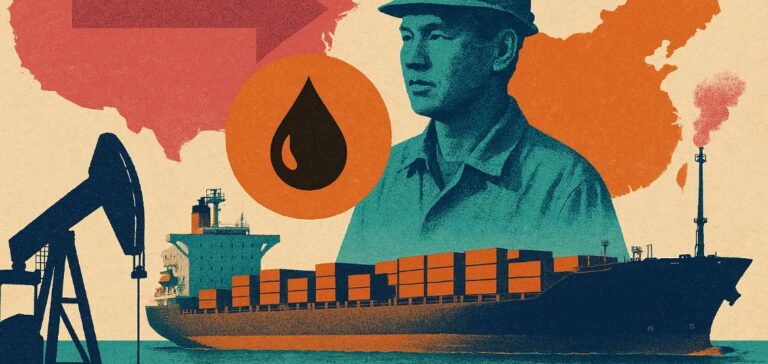The United States government has announced a new series of sanctions against several Chinese buyers of Iranian oil, including an independent refinery and port operators. This move is part of Washington’s strategy to restrict Iran’s oil revenue amid ongoing indirect negotiations between the US and Tehran over the Iranian nuclear programme.
Sanctions against Chinese actors
The US Department of the Treasury has targeted a so-called “teapot” refinery located in China’s Hebei province, accused of illegally processing imported Iranian crude. These small-scale, independently operated refineries form a central part of China’s oil distribution network.
Three port terminal operators in Shandong province have also been added to the sanctions list. They are accused of participating in the purchase or delivery of Iranian crude worth several hundred million dollars. These terminals serve as critical transit points for hydrocarbon imports to coastal refineries.
Sanctioned maritime networks and vessels
Sanctions announced by the US Department of State also include several vessels, their captains and owning companies, all involved in transporting Iranian oil to China. These entities are described as part of Iran’s “ghost fleet,” a network used to circumvent international sanctions.
In a statement, Treasury Secretary Scott Bessent said the United States “remains committed to increasing pressure at all levels of the Iranian oil supply chain” to reduce revenue used by Iran for regional activities.
Diplomatic context remains tense
The new sanctions come as the United States and Iran have entered indirect talks over the Iranian nuclear file, mediated by Oman since April 12. Washington aims to prevent Tehran from developing the capability to produce a nuclear weapon, while Iran continues to assert the peaceful nature of its nuclear programme.
Last week, the US President reiterated on the Truth Social platform his intention to “immediately” strengthen enforcement of sanctions as part of the “maximum pressure” policy against the Islamic Republic. This policy is designed to push Tehran towards signing a new nuclear agreement in exchange for relief from economic sanctions.






















